- Home
- Gail Godwin
Old Lovegood Girls Page 8
Old Lovegood Girls Read online
Page 8
Your Old Lovegood roommate,
Feron Hood
As she was tipping the stamped letter into the corner mailbox (Meredith Grace Jellicoe, Hamlin, N.C.—was that enough of an address?), Feron thought of the Chekhov story about the little boy who writes to his grandfather in the country to come and rescue him from a cruel apprenticeship to a Moscow shoemaker. He puts a stamp on the envelope and drops it in the box, already imagining himself back with his grandfather and the dogs. But he has addressed his letter only to his grandfather “in the village.”
15
After completing her two years at Lovegood, Feron had transferred to the university at Chapel Hill. Miss McCorkle had guided her through the application mazes, and they had landed a full-tuition scholarship for her. All she had to do was keep up her grades. But during her first university semester, Feron had ruined her 3.9 Lovegood average. Both Geography I and Ethics I had sounded like subjects she wanted to know more about, but it turned out the geography class was about topography, not travel, and the ethics class was about systems of language, not “what should I do?” She had squeaked through with a C-plus and a C-minus, but the scholarship allowed her a semester’s grace period to redeem herself. She must be on her guard against future stupid mistakes. For her history requirement, she was most drawn to Anatomy of the Russian Revolution, perhaps because of Chekhov, and a little less so to Introduction to Medieval England. However, an introduction to something sounded less threatening than the anatomy of something, and she had a head start from her European history classes at Lovegood. Miss McCorkle, admitting her bias regarding the Middle Ages, had shamelessly lingered in that period, slighting the Renaissance and hardly touching the Industrial Revolution.
Professor Avery had his back to the room, writing on the board when Feron entered and took the last empty seat. A slender-built man, wearing loose corduroy trousers and a tweed jacket, he was so intent on his task he seemed unaware that his classroom had filled to capacity.
By the time he turned toward the class, two students had left their seats and hovered nervously beside his desk. He had a spare, introspective face behind heavy black-rimmed spectacles, and his retreating hairline disclosed an older man than he had appeared from behind.
“Ah, you must have been reading the writing on the wall,” he said. He signed their transfer slips, dispatching them with a frosty smile.
“Anyone else? If not, I’ll go over the class requirements I have written on the board. If anyone else is having doubts, now is the time to transfer. There will be a midterm exam, a final exam, and one term paper. Each will count for a third of your grade. The exams will be on what we have covered in class or material I have assigned you to read outside class. Your term paper should aim for fifteen hundred words, which is about seven typed pages, double spaced. I will be handing out a list of possible subjects very soon and will meet with each of you privately to discuss a subject congenial to you. I advise you not to procrastinate. The paper is due before the final exam. Any questions? Yes?”
“But, sir, you don’t allow points for improvement. Three shots and that’s it? Shouldn’t a person’s improvement count for part of the grade?”
“You are Mr.…?”
“Tribby.”
“Well, Mr. Tribby, if you aim high, work hard, and keep up with the assignments, you can certainly count on the kind of improvement you’ll be able to measure for yourself. As for the ‘three shots,’ that’s my grading system and I’ve found it usually works well. If any of you has hesitations about how it might work for you, now is the time to transfer out. Don’t be shy. You have a week in which to find yourself a more compatible class.”
A spatter of nervous giggles erupted. By fits and starts, half a dozen more students, including Mr. Tribby, rose and shambled forward.
Having signed all their transfer slips and closed the door after the last departing student, Professor Avery counted heads. “Twenty-four. I ordered twenty-five textbooks. I’m getting better at this. They are waiting for you over at the campus bookstore. The class meets twice a week, and by next time I want you to have read the introduction and the first half of the first chapter, which comes to about forty pages. Do yourself a favor and don’t leave it for the last minute. The author packs a lot into his sentences, but it’s worth it.”
He began to lecture without notes, strolling back and forth in front of the room, mostly addressing the air in front of him. His accent was southern, but different from Uncle Rowan’s. It was softer and missing the rs.
He asked how many had heard the phrase “dwarfs standing on the shoulders of giants.” When no hands went up, he explained it meant that we discovered things by building on the discoveries of those who went before us.
“The phrase itself—nanos gigantum humeris insidentes—is attributed to Bernard of Chartres, a twelfth-century philosopher. However, we wouldn’t know this if one of Bernard’s students, John of Salisbury, hadn’t written it down.”
Now he was talking about something called The Great Conversation, which was the term for the references and allusions made by scholars to the works of their predecessors. Abbreviating and condensing, Feron scurried after his phrases, but his agile switch into Latin had gone by too quickly for her.
“Which returns us to John of Salisbury, an English philosopher and churchman, whose fame is based not only on what he knew but all the famous people he knew. He studied with the best scholars of the early twelfth century, including Bernard of Chartres, whom I’ve just mentioned, and the great Peter Abelard, whom many of you have heard of, probably because of his ill-fated love affair with Heloïse, but they conducted their correspondence for the rest of their lives, he from a monastery and she from a nunnery. I’ve placed several copies of their letters, translated into English, on the reserve shelf, in case any of you are interested.
“Then John came back to his native England, where he served as an aide to the Archbishop of Canterbury, Thomas à Becket. He became a friend of Pope Hadrian and a thorn in the flesh to King Henry II, who’d had Thomas à Becket murdered—
“No, please don’t try to write everything down. You’ll be hearing all these names again. I am simply giving you an idea of how the giant/dwarf succession works through time.”
Slamming the cap on her fountain pen, Feron sank back in embarrassment. She was sure he was referring to the frantic speed-writing she’d taught herself in Miss McCorkle’s classes so as not to miss anything of significance for the Friday quizzes. Her zeal probably struck a university professor as slightly comic.
He told them they would be concentrating on the period between 950 and 1150 A.D., and in the next class they would begin to consider how European medieval civilization was formed by the absorption of attitudes and ways of life from previous civilizations.
“The key word here is ‘absorption.’ Yes, okay, you can write that down. After you’ve read your first textbook assignment, you’ll know more about how absorption works down through the centuries.
“Though we may feel we’re self-made and self-contained, every one of us in this classroom is an accumulation of thousands of years of absorptions. How we think, what we value, how we worship, our legal system, our economics, our politics, our social forms, our whole pattern of daily life, much of it evolves from ideas dating back to the ancient world.
“The thing I find astonishing, though it makes me sad, about the period we will be studying is that during this time certain elements of the population were reaching toward what they thought were the highest feelings human nature could achieve. A new respect for human possibilities was in the air. Ultimately they fell short, but there was something in that period that made them eager to try.”
He had removed his heavy black spectacles and, while polishing them with his pocket handkerchief, gave the remaining students a near-sighted smile, a marked contrast to his frosty, impersonal send-off of the initial deserters.
“I’ll leave you with one more quote by another Bernard from that er
a, St. Bernard of Clairvaux: no need to write it down, because it is one of my favorite maxims and you’ll be hearing it again. St. Bernard said that some of us want to learn so we may be looked upon by others as learned, which is ridiculous vanity; others of us desire to learn so that we may morally instruct others, and this is love; and lastly there are those of us who wish to learn so that we may become enlightened ourselves, and that is prudence. End of quote. End of class.
“No, one more thought. Speaking of love, we will see love, the practice and celebration of love, many kinds of love, come into its own during this time. This is also the period in which the idea of the individual began to make itself felt—the idea that there existed such a thing as a singular person, inside his own skin, unlike any other person. The beginnings of Western psychology, you might say.”
Feron was to come within a hair’s breadth of dropping Professor Avery’s course. She had gone directly from his classroom to the campus bookstore and bought the text for it, The Making of the Middle Ages; she also purchased the first book assigned for her Modern Novel class: A Portrait of the Artist as a Young Man.
Back in her second-floor dorm room she settled into bed (glad her morose new roommate was out; last semester’s roommate had transferred to a sorority house) and opened The Making of the Middle Ages. By the third page of the introduction, she realized she hadn’t taken in a single thing. It was a style of writing she wasn’t used to—Miss McCorkle hadn’t assigned a textbook. Professor Avery said this writer “packed a lot into his sentences,” but for Feron those sentences were too dense and distant. Professor Avery’s off-the-cuff remarks had been far more engaging and alive.
She put the Middle Ages on hold and picked up A Portrait of the Artist as a Young Man. The English professor had told them this was a coming-of-age novel about a boy growing up, “also called a bildungsroman, which is a German compound word combining education and novel.” Miss Petrie had read them a story by this writer, about an Irish boy who gets to the bazaar too late and is disenchanted, both with it and himself.
A Portrait of the Artist as a Young Man opened with baby talk.
Once upon a time and a very good time it was there was a moocow coming down along the road and this moocow that was coming down the road met a nicens little boy named baby tuckoo …
Feron had no trouble beginning this novel, but distractions of another kind interfered. The little boy’s father was telling him that story. Then there is his bedwetting, and we go from home to the school playground, where the bully boy shoves him into the ditch and breaks his glasses.
Reading Merry’s story in the bathroom cubicle back at Lovegood was the first time Feron had been aware that someone else’s success goaded her, but in this instance it was much worse than reading Merry’s story about the class poet of 1918 who died of pneumonia.
Feron hungered to be capable of writing something like this. Her own “education,” but in Joyce’s style, scenes moving back and forth in time, showing the presentness of the past. Stephen is in his cold dormitory bed but also back in his warm home, where his family argues fiercely about politics.
But wait. How old was the writer when this was published? Turning back to the introduction, Feron scribbled numbers in the margin: Joyce was thirty-four, but he’d been working on it for ten years, revising a different and much longer draft with another title and then somehow breaking free into this free-flowing style with its experiences radiating out to form a pattern.
She could remember being very little, being sung to and read to by a grandmother who was always complaining but who had taught her to count by drawing rows of lollipops, and there was a grandfather who took her to the park and smoked cigars, but she wasn’t sure whether this was an actual memory or because there was a photograph of her three-year-old self leaning into a plump kneeling man in a fedora with a cigar in his hand. She had been told after his death that she had talked to the paper bands she’d collected from his cigars. Those were the years in Fayetteville, where Grandad, a master mechanic, had been transferred from Pullen by the railroad just before he died. Mother was out a lot in the evenings, making up for her young single womanhood cut short by the sudden marriage to Feron’s father. In Fayetteville, there was a big army base with an airfield and a series of admiring soldiers and air corps men coming to the house and taking her off to dances. When Feron turned four, the war ended and two bad things followed. Granny died of an aneurysm, and an air corps flying instructor named Swain Eckert married Feron’s mother and took them away to the middle of the country, where he became part owner of a commercial flying field.
Probably it would be wise to drop Introduction to Medieval England. In her notebook she made a column for Leave and a column for Stay. She was working on the Leave column (“won’t be able to keep up,” “can’t afford another C!”) when Gweneth, the new roommate, slunk in, collapsed on her bed with a loud sigh, and turned her face to the wall. Feron knew she had a choice: ask Gweneth “are you all right?” and resign herself to a lengthy litany of today’s reversals and slights, or continue working on her Leave and Stay columns in silence.
As far as roommates went, Feron had had the best first in Merry, and it was all downhill after that. Cynthia Chasteen had replaced Merry. But Cynthia was already thick with her two roommates on the top floor and sneaked upstairs after lights out to spend her nights with them. Feron had a room to herself for most of her final year at Lovegood because her next roommate, Ione Satterfield, had eloped right after the Christmas holidays after discovering she was getting varicose veins in her legs.
In fact, Feron’s year and a half without Merry at Lovegood had been strange to her. She had gone around feeling both overexposed yet more hidden. No longer part of a pair, she had to be seen as herself alone. At the same time she seemed to have gained a mysterious authority. Her standoffishness was interpreted as discrimination. Elected president of the Daughters and Granddaughters Club, she set the members the task of creating an archive, each girl chronicling the family member who had preceded her to Lovegood. The second-year girls just assumed she had grown up with the Hoods in Pullen.
Her first semester at the University of North Carolina she had roomed with Lee Ann Piggotty, whom Feron had privately christened “the paper doll,” because Lee Ann changed outfits three or four times a day and seemed to have the inner life of a cardboard figure. Lee Ann had moved to the Pi Phi house, and now there was gloomy Gweneth, who was rather good-looking when she wasn’t sighing and crying, but who suffered from the biggest inferiority complex Feron had ever encountered.
Funny how the different shortcomings of her successive roommates had doubled and tripled Feron’s appreciation of Merry’s qualities. Sometimes she caught herself feeling Merry had died. Then she reminded herself that she could pick up a pen and write to her. But she didn’t.
“Are you all right, Gweneth?” Feron had known all along she was going to break down and be human. “Is there anything I can do?”
And while Gweneth launched into her day’s recitation of humiliations and hurts, Feron listened with half her attention and leafed through the university’s catalog of courses to see what her options were for transferring out of Professor Avery’s Introduction to Medieval England. She could get her other science requirement out of the way—biology’s squirming things ought to be livelier and more accessible than geography’s rocks. Or she could transfer to another history course, one that also counted for a sociology major: American Culture, “a broad survey of American habits, customs, and social norms from 1776 to the present.” That might be useful as well as enjoyable.
Certainly it would be humiliating to ask Professor Avery to sign her transfer slip. She wasn’t up to it. She couldn’t take it. And she would never find out about absorption and the rise of the individual and the various kinds of love. As with the other dropouts, he would sign frostily without bothering to look at her.
If she remained in Professor Avery’s class, she wouldn’t have to endure this shame.
This item belonged in the Stay column.
16
Within a week, there was Merry’s letter waiting in Feron’s office mailbox.
Dear Feron,
What a surprise to hear from you after so long. Oh, Feron, I am so sorry about your husband, Will. I wish I had met him. It must have been terrible for you, and being in a foreign country and all. Of course, you don’t want to forget him, that’s how I feel about my brother, Ritchie. “The Curing Barn” is my only published story so far, but I have been writing ever since I had to leave Lovegood. I work on my stories for a long time before they are ready. I have some more in different stages of development. About the Petrie name, Miss Petrie died three years ago at Easter. It’s sort of my memorial to her. In a way I write for her. Her faithful letters to me after I left Lovegood right up until she died probably saved my life. It was Miss Petrie who told me about the Atlantic Firsts. There is a lot more to tell, but I can tell you in person if you’re free for tea at my hotel next Friday afternoon. I’m coming to New York, getting in late next Thursday evening and then I have a six o’clock train home on Friday afternoon. I have a lunch commitment, which is actually the reason I’m rushing up there and back, but could we meet any time after three on Friday in the lobby of the Algonquin Hotel? It’s too late for you to write back but could you leave a note for me at the hotel? I’ve checked my Manhattan map and your workplace looks walking distance from the Algonquin.

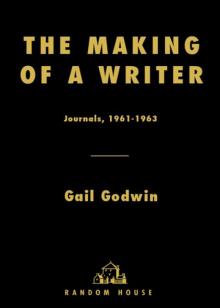 The Making of a Writer
The Making of a Writer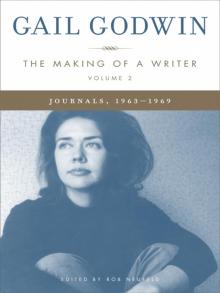 The Making of a Writer, Volume 2
The Making of a Writer, Volume 2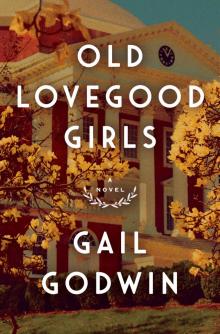 Old Lovegood Girls
Old Lovegood Girls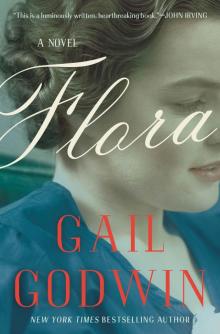 Flora
Flora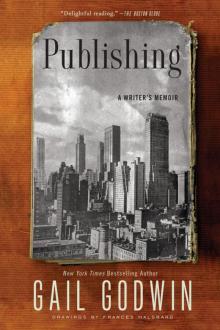 Publishing
Publishing The Finishing School
The Finishing School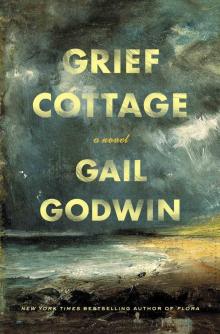 Grief Cottage
Grief Cottage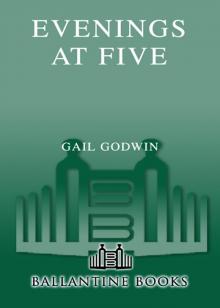 Evenings at Five
Evenings at Five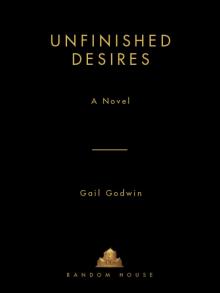 Unfinished Desires
Unfinished Desires